Yoga in Schools: A case of religious teachings or physical fitness?
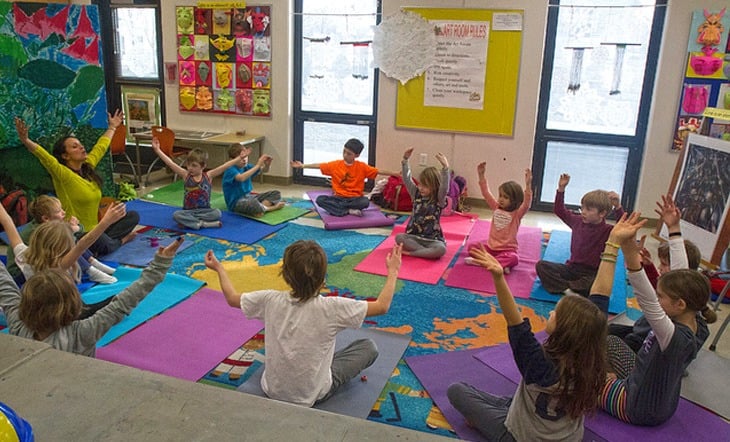
Do you think yoga in public schools is a violation of church and state? Is yoga religious in nature? Do you think yoga should be taught in public schools? These questions have been posed across the country since last Friday, when a California appeals court ruled that yoga that is taught in San Diego County public schools does not violate religious freedom.
The case originally spawned from the parents of two students who claimed that yoga was religious in context and promoted Hinduism. The ruling found while that yoga may be religious is some contexts, in this particular school program, there are no religious, mystical or spiritual undertones to the yoga teachings.
Yoga is taught at many public and private schools across the country, and it is a great outlet to help children balance their mind, body and spirit connection. And, by spirit, we are not talking religion – we are referencing inner peace with oneself.
While yoga has its roots in Hinduism and Buddhism, today’s yoga has evolved into a physical and mental release for many practitioners. The pose names have also evolved, as many are known by both their Sanskrit and modern-day names (i.e. Adho Mukha Śvānāsana or Downward-Facing Dog). The change in vernacular and the fact that many diehard yogis do not know the Sanskrit terms for poses is a further testament to the shift away from yoga’s original roots.
This shift has opened up the possibilities and potential that yoga offers to the masses – of all religious backgrounds and followings – without said yogis having to give up or negate their religious beliefs.
We took this question to TheYogaRoom, a popular Facebook group of over 7000 dedicated yogis, to find out their opinion on the subject matter. The comments came flowing in!
Teachers
Joi Burke Straaten, a yoga teacher at a Charter school in Utah, has been teaching yoga to 9-12 grade students for that past three years. “The students LOVE it!” said Joi. “I am very grateful that I can bring yoga to a population that so desperately needs it…. I also teach my high schoolers about the Sutras, but refer to them as helpful ideologies for individual and for community… They keep a gratitude journal in class and write 5 things they are grateful for each day, before class starts. They DO practice at home, and LOVE to tell me about their progress. I feel blessed to be able to teach them.”
Pan He is the yoga facilitator for the mandatory yoga program in all public schools for children with disabilities within New York City. Pan explained, “The administrators are very strict about following the yoga protocols and everyone in the school, students, paraprofessionals, and teachers have to do yoga every morning.”
Elizabeth Bronwen, a veteran public school teacher with many students who have emotional and behavioral difficulties, explained that she has her students do forward folds or bend their knees and reach to their toes as a way to calm them when they are upset, a calming technique for the central nervous system. Elizabeth cautioned that school teachers who use yoga in the classroom need to understand the limitations that individual students may face, but she explained that much of this is common sense. “You wouldn’t ask a child to stand on 1 foot if that foot was broken!” she said. “You do want to teach children to pull their shoulders back and breathe deeply! It is nothing more than best educational practice! We need oxygen in our brains in order to learn! If a parent has an issue with their student doing yoga in school, kindly explain to administrators and the parents about what exactly you are doing! Another option is to simply call the yoga ‘exercises.’”
“The kids will get the same benefit no matter what you call it!”
Parents
Parents were also “for” yoga in schools. Christina Wiedemann-Edwards said, “I think every persons yoga journey is different. I, for example strictly do for the physical aspect. I know in my children’s (public) school they do it from time to time. For them it is used for calming and relaxation. I see no problem.” Amy Elizabeth Bohler exclaimed the same sentiments, “My kids did yoga for PE. I loved it.”
“I’m a Christian and I would LOVE it if my kids could learn yoga in their public school PE classes!” Jen said Wilson Loggins. “Sometimes they do a little yoga, dance, hip hop, etc. before class starts in the mornings and I know from experience kids learn better when they have outlets for all of that physical energy they have. Yoga has helped me so much with my anxiety and keeping my inner peace, I think we would see less conflict and bullying in schools if yoga was a part of the routine. I don’t see it as a religious practice. Spiritual, yes, religious no. Anything that brings joy and love into your heart is spiritual in my opinion.”
Tamara Lewis said that she thinks yoga is not a violation of state and religious, however, “Parents should be made aware of the benefits and be able to opt in or out for their kids.” She explained that when her 7-year-old son does yoga, there is an improved shift in his attitude and academics.
Optional
Other yogis felt that yoga in schools should be optional, at the discretion of the parents. While Bronwyn Henderson is “for” yoga in schools, she says that she feels that it should be optional, without pressure. Brownwyn cited China’s use of Tai Chi in classrooms and how it helps the mind, body and soul connection for students. Amanda Wade also agreed, writing “I think it should be an optional thing to participate.”
“I think it should be an optional thing to participate.”
Physical release
Many other yogis explained that for them, yoga is physical. Penny Morelock said, “I’m sure for some people it’s religious, but for me it’s just another great athletic adventure. Some can always make a mountain out of a mole hill. I have many friends from many different denominations and I don’t try to change them.” Jayleaine Chancellor explained, “Yoga can be so many different avenues….not sure why religion has to be thrown into their mix……just like some people have stated it is strictly a workout….so allow children a chance to discover yoga and the many avenues of discovery it offers.”
Positive benefits for children
Kristianna Morgan is pro yoga in classrooms. She explained, “I think it would be a great way for kids everywhere to benefit from yoga, who knows. It might even curb bullying.” Janine Agoglia also does not feel that yoga is a religion. “Breathing and moving the body should not interfere with anyone’s religious beliefs,” she wrote. “Many studies show that yoga improves children’s ability to concentrate and learn.”
Caroline Williams wrote that she thinks that all schools should have yoga. “I think the power of mindfulness, kindness and compassion for yourself and others are really important lessons especially for kids who these days have lots of stress and sometimes less real (not virtual) connection with each other than previous generations who were let out more free to wander and play naturally, not to mention through puberty.”
“Many studies show that yoga improves children’s ability to concentrate and learn.”
Jen Dickson Christensen said that she did yoga in high school gym class, without issues. “But I feel like with today’s society and the way things are perceived at times, someone would get their panties in a wad over teaching it in schools.” She continued, “But it definitely has positive implications for improvement for anyone who practices. My husband (who is on the low end of the autism spectrum – aspergers) uses it as a calming technique to help his body get the proprioceptive input it needs when he is overstimulated or overstressed with work.”
Yes, but limited
While Hien Hong said that she thought asanas and pranayama can be taught in schools. She explained, “The rest of the 8 limbs will bring interesting philosophical discussions but could seem more like religious teaching.”
No, yoga is not a religion
Rahul Acharya Yoga, a native of India, agreed that yoga should not be related to religion. She explained that she has been debates on Indian media about yoga in public schools in western countries, and her opinion is that yoga is related to physical and mental strength. “It improves our senses, It improves our personality, it gives us unbelievable powers, piece of mind, happiness and so much,” she said.
Cassie Chamberlain eloquently wrote, “Yoga is not a religion. It is a journey to find oneself. It is a way for someone to feel things they may not have felt before. It is a way to open up in ways that person may not have known how to open up before- physically, mentally and spiritually. Yoga is a journey to the true self.”
Nonie W. Arthurs explained that yoga is not a violation of church and state and suggested that it be taught in schools, rather than competitive sports.
“Yoga is not a religion. It is a journey to find oneself.”
Rick Feldman described a conversation with his mentor about why yoga is not called a religion, which perfectly sums up this argument. He wrote, “To call Yoga a religion, would push many away from participating and receiving the numerous benefits yoga has to offer.” He continued, “This means, that sometimes we must omit the more esoteric and deeper aspects of yoga, until such time as a suitable opportunity presents itself. Such opportunities have shown themselves, and I continue to offer my students a practice that grows as they evolve together. As a parent, there is a time and place for exposing my children to all this world has to offer. I suggest that the same holds true for our students. Of course, not everyone will be ready to receive knowledge at the same time. Some will be offended as others will cherish what we have to offer. What is most important, is that we respect those that we come in contact with. Hoping that they respect us to provide our very best in return.”
The general consensus from respondents was “for” yoga in the classroom, and as Brian Donohoe wrote, “Yoga is no more religious than algebra.”
Where do you stand on this topic? Share your opinions in the comments below.
Image: flickr Creative Commons


This Month's Letter
From the Editor
Monthly motivation and food for
thought from our founder.

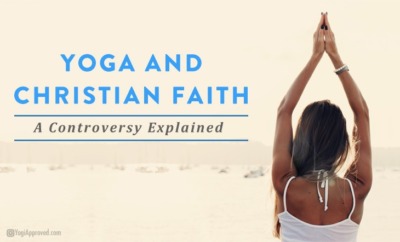

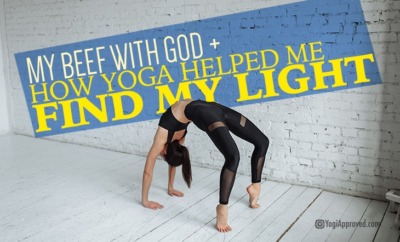
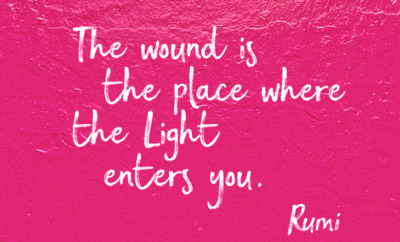



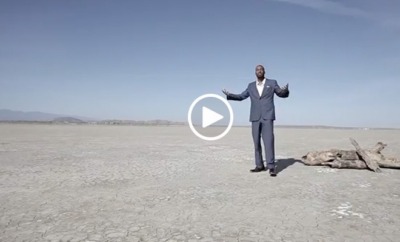

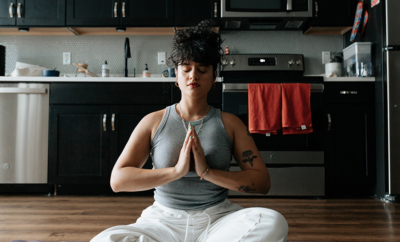


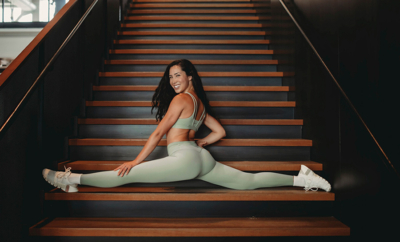
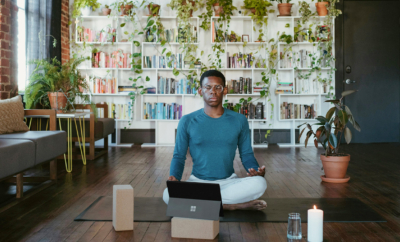




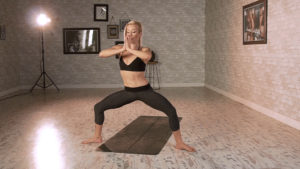
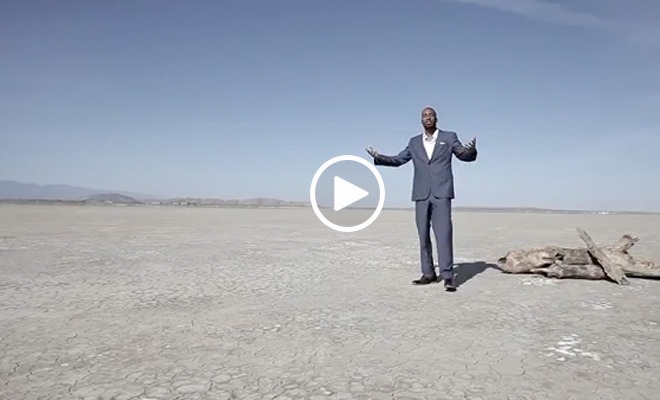
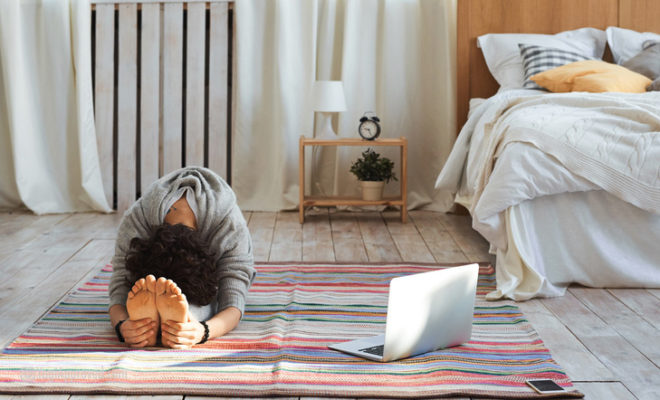




Comments